The Last of the Cowboys
by Jude Roy
When Joe Archer threatened to kill me, I took it up with the head of university security.
“There’s very little we can do unless he physically assaults you.” Paul Richelieu was a burly man with a grayish buzz that covered his head like a swath of mowed grass. A slick handlebar moustache dangled from the corners of his mouth. His nervous brown eyes kept dancing from me to the door and back to me.
“What?” I asked. “You mean he has to kill me before you can do anything about it?”
Richelieu studied his fingernails for a second of two before glancing up at me. He had large hands with stubby sausage fingers.
“It’s your word against his. Was anyone privileged to the alleged threat?”
“Excuse me? ‘Alleged threat’?” I wanted to say more—to remind him that I was the professor and Archer was the student—to remind him that I had been teaching at Immanuel University for five years and Archer was a first-year student—but I knew that none of that would help my case. Richelieu had a reputation for being tough on faculty.
He shifted his bulk in the office chair, and it creaked in protest.
“You know he’s going to deny it. Then it’ll be your word against his.” His eyes darted to the door and back at me. “You did say that there was no witness to the alleged threat?”
“Not that I know of. He came to me after class. “Richelieu held his hands out and shrugged his shoulders in a gesture of helplessness.
“I am the professor,” I said, despite myself. “Doesn’t that count for something?”
A grin slowly spread across Richelieu’s face. He was going to enjoy his response.
“Diddily shit,” he said through yellow teeth.
I nodded, stood, and made to leave.
“Do you want me to talk to him?” He asked, reluctantly.
“And piss him off more than he is?” It was my turn to smile. “I’ll deal with the situation since security seems incapable.” I turned my back on him and walked out.
***
“He did nothing?” Gayla yelled when I told her the events of the day.
“Nothing,” I said shrugging my shoulders. “Apparently it’s my word against Archer’s and neither one of us holds the edge.”
“But you are the professor, the authority figure in this case. Aren’t you?”
“According to Richelieu, that means diddily shit—his words, not mine.”
Gayla paced a few times before the stove. She cooked chicken curry stew, my favorite meal, and the aroma stimulated my appetite. I reached into the refrigerator and pulled out a beer, one of those dark Spanish types that I liked.
“Don’t go to class,” she said. “It isn’t worth it.”
“I can’t just shirk my responsibility,” I said. “What about all the other students who paid good money to be taught English? I owe them something.”
“You don’t owe them your life.”
My six-year-old son walked into the kitchen, hugged my leg, poured himself a glass of lemonade, and disappeared again out the back door.
My wife waited until the screen door slammed shut before continuing.
“This is ludicrous. Someone threatens to pop a cap in your head and you don’t take it seriously.”
Coming from my wife it sounded farcical, but it hadn’t sounded funny when earlier that afternoon Joe Archer said almost the same words. My three o’clock developmental class was the last of the day for me. It ended at three fifty and I was usually at home by four fifteen if no students stayed after class with questions. I waited respectfully as the students filed out. Then I started to file out with them. As I was just about to go past Joe’s desk, he stood up and blocked my path. He was a non-traditional student—older than the others were—a tall sinewy man with dark, severe eyes.
“Just a minute,” he said. “I want to talk to you.”
“Okay.” I returned to the front of the room and placed my stack of books on my desk. Joe Archer threw his backpack next to my books and leaned across the desk.
‘I don’t like English,” he said. There was not a trace of humor or sarcasm in his voice.
I laughed, suspecting a joke. I looked over his shoulder expecting someone to pop in and say, “Got you.”
“You see something funny out there?” He indicated the door with a nod of his head. His eyes never left mine.
“Listen,” I said, trying to disguise the sudden fear rising in my chest. “You don’t have to like English. It’s a class. You take it. You pass it. You go on.”
“You’re going to pass me. Right?”
“If you make the grade, I’ll definitely pass you.”
“Let’s get something straight, Mr. Professor. Either you pass me, or…” He held his arm out, his hand shaped like a pistol and aimed at my forehead. “Or bang.”
“Are you threatening me?”
He glanced over his shoulder at the empty room.
“I been to Vietnam, Mr. Professor. I killed more gooks than I’d care to count. I even killed a snotty-nosed lieutenant that tried to send me down one of those rat holes out there. You think I’m going to have any problems popping a cap in an English professor’s head?”
I didn’t answer. I picked up my books and marched out of the room on shaky legs. When I arrived in my office, I called my wife and relayed what had occurred.
“Go see security,” she said. “He needs to be removed from campus.”
That hadn’t worked.
I tried not let on to Gayla just how frightened I was. I took a spoon from the silverware drawer and dipped it into the curry chicken. I blew on it for a few seconds and sipped it.
“Man, I’m so glad I married you and didn’t let that skinny biology dude grab you. If he had known how well you cook curry chicken, he would have put up much more of a fight.”
My wife scowled at me.
“Don’t think I don’t know what you’re doing. You’re not going to get out of this that easy.”
‘What can I do, Gayla? I need the job. I can’t just quit because some psycho asshole decides to intimidate his English teacher.” I chuckled and reached in the refrigerator for a beer. It was just too bizarre—an English teacher of all things.
“Call your department head.”
“Oh, come on Gay. I’m on tenure track. I can’t go around stirring up the waters.”
My son popped his head in the doorway.
“Are you two fighting?”
“No,” we both exclaimed and he quickly withdrew.
“Call him,” Gayla said and handed me the phone. I sighed and took a long sip from my beer.
Paul Washburn’s specialty was John Donne. He was a small pale man usually dressed impeccably in a suit and a skinny tie. He had a whinny voice that sounded like it was coming from the bottom of a tin drum. I was hoping he would not be in his office or would not be answering his phone at 6:00 o’clock in the evening, but I knew he would be.
“Washburn,” he whined.
“Dr. Washburn, this is Gary Soileau.”
“Yes, Gary. How are you?”
“Fine, sir. Uh, I’m afraid there’s been a sort of incident during my developmental class today.”
“Oh? Nothing serious, I hope.”
I looked at Gayla and rolled my eyes. She shook a stirring spoon at me, threatening me forward.
“Serious enough that I took it to Richelieu.”
“That does sound serious. What happened?”
“One of my students, Joseph W. Archer, threatened me. He threatened to pop a cap in my head if I didn’t pass him.”
“Pop a cap?”
“Yes, sir, that’s the vernacular for put a bullet in my head.”
“Are you sure there was no misunderstanding?”
“Absolutely sure.”
“What did Richelieu say?”
“That he couldn’t do anything until the student actually carried out his threat.”
“He actually said that?”
“Perhaps not in those words, but that was his meaning.”
“You probably should have come to me first with this, Gary. It usually is best to keep these kinds of problems within the department if we can.”
“Sir, this was very serious. The man looked capable of carrying out his threat. At the time, I thought security was the right choice.”
“Water through the dam. What do you want me to do? Reassign you?”
“No, sir. It doesn’t matter who takes over the class. He is going to have to deal with Archer.”
“What then?”
“I wasn’t asking you to do anything, Dr. Washburn. I simply was informing you of the situation, in case something untoward did happen.”
Gayla glared at me. I shrugged my helplessness.
“I tell you what I’ll do, Gary. I’ll have Security place extra people around that area Wednesday. What is your classroom number?”
“25B, sir. But I don’t think Archer would attempt anything at school. Extra security may just complicate matters.”
‘Tell me what you want me to do, Gary.”
“Nothing, Dr. Washburn. I can handle Joe Archer. If it gets any messier, I will contact you.”
“That sounds like a good plan, Gary. Keep me posted. Okay?”
“Yes, sir. I will. Goodbye, Dr. Washburn.”
“Goodbye, Gary.” He hung up.
I handed the phone to Gayla, and she slammed it on the cradle. I chugged my beer and reached inside the refrigerator for another.
“Damn,” I said and faced an angry Gayla.
“You should have been more assertive.”
“Alright Gayla, You tell me. What would you have done?”
She stepped away from the stove and stood in front of me. Her action reminded me of Archer.
“I would have told Washburn to do something. It is his responsibility to make sure his people have a secure place to work in, Gary. You wimped out and took on the responsibility on your shoulders. You always do that. Sometimes you’re so damn macho.”
“You can’t have it both ways, Gayla. Either I’m wimpy or I’m macho. I can’t be both.”
She raised her hand. I thought she was going to slap me, but she didn’t. With a cry of exasperation, she stomped out of the room.
***
I prepared myself as best I could for the next meeting with Joe Archer. I bought a pepper spray canister and convinced myself that I could handle him if he tried anything in my classroom. He entered with the other students, dropped his book bag, with the skull and cross bone patch stenciled on it, on the floor, and glared at me. I taught my class as usual, keeping a hand close to the pepper spray and a wary eye on Joe.
Actually, the only real problem I had with Joe during the course of the semester was the time I took the class to the computer lab to introduce them to word processing. He waited until all the students had filed out. Then he stood and confronted me.
“I’m not going,” he said crossing his arms over his chest. He wore a black sleeveless shirt and his biceps bulged intimidatingly.
“What?” I rested my hand on the pepper spray.
“I’m not going. I don’t know a damn thing about computers and I don’t want to either. I’m not going.”
‘Do you know how to type? That’s basically all I’m going to ask the students to do.”
‘I don’t type either.”
I decided that I had two choices. I could cite my syllabus, pointing out to him that it explicitly stated that all papers written out of class needed to be typed, or I could try a different approach.
“How’s your handwriting?”
He looked at me at me in surprise, his eyes widening, his arms dropping to his side.
“Decent, I suppose.”
“Good,” I said. “All I’m going to do is have the rest of the students type up a rough draft of their essays. Why don’t you stay in the classroom and write yours out. When you’re done you can bring it to me in the comp lab. Okay?”
“Yeah, sure, I guess.” He started to turn around—then stopped. “What else?”
“Nothing. Don’t forget to double space.”
He sat down and I joined the other students in the computer lab. Thirty-five minutes later he handed me his paper, printed in a careful hand.
“You’ll let me know how I did on that?”
“Next meeting,” I said.
Joe’s paper was a three-paragraph proposal to use ex-servicemen as supervisors of youth boot camps. His idea was well thought out—the execution was weak; however. I saw the potential of the work and kept him after class.
“That’s a good essay,” I said, placing it face up on his desk. He looked down and lifted it with two hands.
“It can’t be that good. You bled all over it.”
I smiled. It was the first time I’d ever heard him joke about something in the class.
“Sure, it’s got a few problems with execution, but the idea is solid as a rock. I believe it’s an idea worth pursuing, Joe.”
“I’ve been thinking about this a lot, Professor. I can’t think of anybody who would be more qualified to run them than ex-jarheads like me.”
“Were you in the marines?”
“Yeah, man. Spent two years in Nam. Took a shrapnel in my arm.” He lifted his arm and showed me an ugly red scar. “Damn thing entered just above the elbow and came out just behind my shoulder there.” He pulled his shirtsleeve back and showed me the exit scar. “I was damn lucky it didn’t hit a bone. I spent a few weeks stateside healing up, turned right around again, and volunteered to go back to Nam. I was there at the fall of Saigon. I felt the humiliation.” He paused a moment, and I watched as he consciously pulled himself together. “Yeah, man. I was in the marines.”
“Tell me about those boot camps, Joe.”
He talked for a good while and I was impressed with how knowledgeable he was on the topic. He invited me to go have a beer with him at the local VFW Post. I agreed and I called Gayla, who was horrified that I was even considering it.
“He’ll take you somewhere and shoot you,” she argued.
“No, honey. I got a glimpse of him today. I don’t think he would do that.”
“You don’t think? Gary, you’re not a psychologist.”
“Listen, he’s an interesting person. He’s invited me to have a beer and talk. I think I should take him up on it.”
There was a long pause over the phone.
“Damn it, Gary, you’re doing that macho stuff again.” She paused waiting for me to say something, but there was no way I was going to take the bait. She broke the silence with a sigh. “Where are you going?”
“The VFW Post.”
“Oh, god. With all his homicidal, fanatical, ex-army friends.”
“Marine.”
“What?”
“Marines, he was in the marines, Gay.”
“Damn you, Gary.”
“It’ll be alright, Gayla.”
“It damn well better be, or I’ll never talk to you again.”
“Listen to you.”
“Be careful, Gary.”
“I will.”
***
I met Gayla in Lafayette, Louisiana where I was student teaching and working on my Masters of English degree. It was a beautiful spring day, and I had a break, so I took the Evelyn Waugh book I was reading for one of my classes and made my way to Garrard Park just a few blocks from campus. I chose a picnic table shaded by a live oak and cracked open the book. The table sat next to a walking path and Gayla jogged past. I couldn’t believe how beautiful she was. When she jogged past me again, the book lay closed on the picnic table—forgotten. The only thing on my mind was Gayla. She wore skimpy jogging shorts and a sleeveless tee shirt. She had tied her hair, almost as long as it was now, into a ponytail, and it bounced in rhythm with her running. When she came around the third time, I made my move.
“Aren’t you tired yet?” I called out.
She stopped running, faced me, and jogged in place.
“No,” she said simply and took off again.
The fourth time she came around, I didn’t say anything, as well as the fifth. The sixth time she came around, I decided to say something.
“Now, I’m tired.”
She stopped again and jogged in place. She was breathing hard.
“Are you watching me?”
“Uh, huh. That’s how I get my exercise.”
She smiled. Probably because that was either the most unusual pickup line or the stupidest, she’d ever heard.
“Who are you?” She was still jogging in place.
“I teach at the college.”
“You’re a professor?”
“That’s in my future. Right now, I’m a student teacher.”
“What do you teach?”
“Writing, mostly developmental writing. I struggled with writing all my life, and now that I’ve seen the light, I want to share it with others.”
“Really,” she said and took a seat at the table with me. “And just what is the secret?”
“Exercise. Now, it’s my turn to ask a question.”
“Wait a minute,” she interrupted. “What do you mean by ‘exercise’?”
“Writing is a physical memory like shooting a free throw or hitting a tennis ball. The more you do it the better you get.”
“What if you start off doing it wrong?”
“Then you miss and figure out why. My turn to ask questions.”
“Okay, that’s fair.”
“What do you do?”
“I’m a student at the college?”
“Really? I’ve never seen you in my classes. I would remember.”
“I know how to write, apparently.”
“Touché.”
“I’m working on a BS in mathematics.”
“Oh, God, my Achilles’ Hell.”
“Shouldn’t that be Achilles’ Heel?”
“No. Hell as in H E double L.”
She laughed. She had a nice laugh uninhibited as a child might laugh. “Do you ever go out?”
“Sometimes.”
“Where do you like to go?”
“Now, who’s asking all the questions?”
“One more, okay?” She nodded. “Would you consider going out with me?”
She looked at the book sitting on the table.
“What book is that?”
“You’re avoiding the question.”
“Yes, I am. I don’t know you.”
“What’s there to know? My name is Gary Soileau. I teach writing. I’m kind to animals. I like to help people better themselves, and I earn enough to afford to take a beautiful woman to a decent restaurant.”
She laughed again.
“Okay, but I’m a tough nut to crack.”
“Believe me, my intentions are honorable.”
The rest was history. The chemistry between us was incredible. We married the day after I received my diploma.
***
The VFW Post was just out of town, down a narrow tree-lined blacktop road. The building was a low-slung brick rectangle with a glass door and no windows. A dusty graveled driveway circled the flagpole in front of the building and a sad-looking Sherman tank in need of paint sat alone in a circle of gravel to the side. Someone had planted lilies around the edge of the circle.
Joe met me at the door with two bottles of Budweiser. He handed me one and then led me through a lobby and down a short hallway to a bar. A Johnny Cash tune blared from the speakers hanging from the four corners of the room. Several men smoked and drank at the bar while another group sat at a table in the corner playing cards. The room was thick with smoke and smelled like beer.
“Hey, everybody,” Joe yelled out over the music. ‘This is my English professor.”
“Big fucking deal,” someone at the table said. A couple of men from the bar nodded. One of them slid off his stool and shook my hand.
“Any friend of Joe’s is a friend of mine,” he said and returned to his drink after a nervous glance at Joe.
“These are the regulars,” Joe said, indicating the bar with his beer bottle. “They come in every day and this is what they do—drink, play cards, and relive the wars.” He offered me a stool and sat on the one next to it.
“How about you?” I asked.
He nodded, slowly.
“Yeah, me too.” He turned and picked at the label on his beer bottle for a while. “Can I tell you something, Professor?”
“Go ahead.”
“I can’t talk to them about some things. You know what I mean?” I shook my head. “I can talk to them about wars and killing and shit like that, but I can’t talk to them about other things.”
“Such as, Joe?”
He glanced over his shoulder at the card table.
“Ideas, you know. Oh shit, man. I write poetry.”
I almost laughed. He was so serious.
“Oh,” I said, stroking my moustache. “What kind of poetry?”
“Just stuff, man. About the war. About John Wayne. About my woman. You know, stuff.”
“About John Wayne?”
“He’s my hero.”
He fell silent again, picking at the beer label. I listened to a Waylon Jennings tune, and surveyed the room. It wasn’t a big room. The bar ran along one wall, the shelves behind it filled with bottles of whiskey and liquor. The music came from a small cassette deck. The bartender was a short man with a hard face and thick arms and legs—probably an ex-serviceman, too. The walls were covered with posters—of servicemen, scantily clad women, and weapons. Three small round tables lined the wall opposite the bar. A ceiling fan twirled on low, the light from it joined the two beer sign lights hanging from the entrance wall and the back wall to illuminate the dark room. A floor lamp provided the card players with light enough to read their cards.
“I know me and you got off to a rough start,” Joe said. “That was before I understood about you.”
“What do you understand about me, Joe?” I was curious.
He glanced at me, and then returned to his beer label.
“That you care about whether we learn this shit or not. It’s important to you.”
“You’re very observant.”
“I know about caring, Professor.” He looked at me. “Can I ask you a favor—a big favor?”
“Sure,” I said. “Ask away.” I wanted another beer, so I signaled the bartender to bring over two more.
“Would you mind reading over some of my poetry? Letting me know if it’s any good?”
“Not at all, Joe. I would love to.”
I had two more beers before I left there and drove home. Gayla was furious. Why hadn’t I called? Didn’t I know that she was worried sick about me? I leaned over and kissed her on the forehead.
“Don’t ever worry about Joe Archer, honey. He and I are buds. He’s letting me read his poetry.”
She looked at me as if I was crazy.
***
At first, married life with Gayla was fantastic. I got a job teaching at Clemson University in South Carolina, but it was one of those four years and you’re out kind of jobs.
“Without a PhD,” the department head told me. “We can’t put you on tenure track.” That’s when I knew that I would have trouble finding a tenured job. I had three choices: find another career, get a PhD, or publish. I had taken a few creative writing courses, so I wrote this satire about a black man elected mayor of a small Louisiana town and sent it to the Atlantic. To my complete surprise, the magazine decided to publish it. When my four years at Clemson ended, I applied for a tenured position at Emanuel University and they accepted me. Washburn wanted me to teach creative writing. I said I would if he allowed me to teach developmental writing also. He jumped on it. Apparently, most tenured teachers didn’t like teaching developmental. I gathered my wife and my five-year-old son and moved to Springfield.
At first, life was good. The department liked me fine. They had me teaching two creative writing classes and two developmental classes. Where life was getting complicated was at home. Gayla was becoming officious. She started monitoring my career telling me how to act in front of the senior faculty, and whom I needed to impress. She told me that I wasn’t aggressive enough—I needed to sway the right people—make demands. I felt as if she was entering a part of my life I didn’t want her in. I felt as if my home life should be separate from my work life. I wanted her to let me handle my own career. Her meddling was irritating.
***
The semester was a good one. Joe passed my developmental class with an A+. In fact, I recommended the department give him credit for Writing I. He had improved that much. About a week after finals, I received a phone call from him inviting me to come to his apartment for a drink. I suspected he wanted me to read his poetry, so I accepted.
His apartment was about a block from campus in one of those neighborhoods that catered to students. I climbed the iron stairs to the second floor and knocked on the door. Joe opened it holding a bottle of Corona in his fist.
“Here,” he said and pushed the bottle at me. I took it and followed him into the place. He led me to a cloth couch across from a television. The first thing I noticed was the John Wayne posters. There must have been five or six in that one room—John Wayne as a green beret. John Wayne as a World War II soldier. John Wayne as a Seabee. John Wayne as an oilman. John Wayne as a cavalryman. John Wayne as a cowboy. And my favorite, John Wayne as Rooster Cogburn, the cantankerous old cowboy in True Grit. A stack of VCR tapes sat on the television. All the titles I could read were John Wayne movies. In fact, The Green Berets played on the television with the sound turned down.
“You like John Wayne, huh?”
“I told you. He’s my hero. Nobody did more for our country than John Wayne. I try to live my life following his example.”
“I see.”
Joe disappeared for a few minutes and reappeared holding a bottle of tequila and a black folder. He held out the bottle to me; I shook my head. He shrugged and raised it to his lips. I watched his adam’s apple bob up and down as he swallowed several good drinks. He pulled the bottle from his lips with a satisfying sigh, recorked it, and placed it on the floor between us. He handed me the black folder.
“These represent my life,” he said, his voice stony serious.
The folder contained about twenty or thirty poems, carefully hand printed in blue ink. Each poem was numbered and dated. Each one rhymed. Poem number one beseeched Emily to “fill his heart and empty his head”—begged Emily “to lose her innocence and climb into his bed.” Poem two rejoiced in his love for her. Poem number five was a tribute to John Wayne. “He walks across the screen like he walks across my heart. With everything he does, he asks me to do my part.” The poem ends with, “And now that he’s dead and gone to his maker/his memory a mere cocktail shaker/of scenes and lines, I can only drink to who he was/and offer him my drunken applause.” Poem nine was about Vietnam—a friend “spread around the gook countryside like chopped up manure.” In poems ten through fifteen, he begs Emily to come back to him. In fifteen, he threatens to commit suicide if she doesn’t: “I will blow my fucking brains out on this clean white ceiling. /Understand what I’m saying—listen to my feelings.” The rest of the poems, sixteen through twenty-one, were about Vietnam or people he knew in Vietnam. Number nineteen was about a friend’s ashes “sitting on the altar of life. /Free from all worries—free of all strife.” Number twenty-one, dated the day before, expressed the futility of making sense of life after Vietnam. “Once you’ve held a bleeding heart in your hand—/Once you’ve heard the music of God’s big band,/Then you can never go back to living as normal people do./You can only mix in with the living stew/Drink yourself to death—drink yourself to death/And breath your last breath—breath your last breath.”
When I had read all twenty-one, I reached down and took a swig of tequila.
Joe took the bottle from me and swallowed some more.
“What’d you think?” He asked after capping the bottle.
“There are some very powerful poems in here, Joe.”
He took the folder from me and scanned the pages.
“It’s like I told you, Professor. This is my life. This is me.” He shook the folder at me and tossed it on the coffee table where it came to rest next to a John Wayne comic book. “Can I tell you something, Professor?” I nodded. “It’s personal.” I nodded again. “Come with me,” he said, and I followed him into his small kitchen. He pulled open the refrigerator and pulled out two Coronas. He gave me one and pointed the other to a row of pill bottles neatly lined up on the counter. “A couple of years ago I visited a VA psychiatrist. I was depressed—couldn’t seem to stop myself from crying. I’d watch a John Wayne movie and boohoo like a baby. Hell, I’d be sitting in a restaurant eating a Burger King or something and start boohooing. The doctor prescribed me TCA’s, uh, Tricyclic Antidepressants. I started shaking like a tree in a windstorm. I couldn’t even hold a phone to my ear without pounding myself to death. Then I started throwing up. I’d go to piss and it was worse than an old man—I’d stand at the urinal with my thingy in my hand and wait and wait and wait for a teeny little drizzle. It was pathetic. So the doctor prescribed Phenelzine and when that didn’t work, he prescribed tranylcypromine.”
I shook my head. I had never heard of any of those medications.
“Yeah, I know what you’re thinking; ‘He sounds like a fucking pharmacist.’ Well, I do. It’s a necessary side-effect of what I have.” He took a swig from the tequila and chased it down with a swig of Corona. “I ballooned to twice my size and nearly killed myself when I gorged on a hunk of blue cheese. How the hell was I supposed to know that you weren’t supposed to eat aged cheese with that crap? That’s when the doctor put me on fluoxetine, Prozac. Life is near perfect for me now.” He picked up a bottle of pills and shook one out. He placed it on his tongue and chased it down with a swallow of tequila. I tend to be a little more aggressive, but not nearly as aggressive as I was in Vietnam, so it’s a matter of degree, I guess. I don’t sleep as much, which is okay because when I do sleep, I have these violent dreams. The last time I slept, I dreamed that I killed a man by shoving a mop handle up his butt. Can you imagine? A mop handle?” He shook his head and laughed. Then he took a long swallow from his beer. “Come here,” he said. “I want to show you something.” We walked down a short hallway until we came to a door on the right. He pulled out a key and unlocked the deadbolt installed in the door. “This is no everyday flimsy interior door, Professor. This is a steel reinforced exterior door. If you’re going to break into this room, you’ll have to have a battering ram or the key.” He swung the door opened with fanfare. “Welcome to my special room,” he said.
The room was a standard apartment bedroom, approximately ten feet square, but what was amazing was the color. The ceiling was a glossy white, the walls were a glossy red, and bright blue tile covered the floors. The two windows in the room were painted red and barred. The wall opposite the door held a map of Vietnam about five feet by five feet. Little black and white pins covered the map. The wall to my right was an arsenal. Several rifles and pistols rested on racks and in rectangular cases. I recognized an AR15 and a .45 caliber pistol. Another weapon looked like a grenade launcher, but I didn’t know enough about military weapons to say for sure. One rectangular case held four grenades, the pins still in them. An American flag covered the wall to my left. Behind me, the wall held several road maps: Arkansas, Louisiana, Michigan, California, Montana, and Missouri. Pins dotted their surfaces, too. In the middle of the room, directly under the light, a flag-draped altar stood. On top of it sat an urn.
‘How do you like it?” Joe asked.
I was speechless. The room frightened me—perhaps it was due to the bars on the windows, or the weapons, or maybe the care with which he had arranged everything, or the garishness of it all.
‘What is it, Joe?”
‘It’s my special room. You’re only the third person to ever see it, not including me.” He grabbed my arm at the elbow and led me to the Vietnam map. “The white pins are engagements I’ve been in—the black ones indicate the death of someone I knew.”
“Wow.” There were at least twenty-five black pins, and too many white ones to count. I nodded toward the urn. “What’s this?” I asked.
Joe walked over to the altar and gently placed a hand on the urn.
“This is ConnieMac. The sweetest son-of-a-bitch to ever share a foxhole with me.”
“You served with him in Vietnam?”
“Uh huh. CM and I were at Khe Sanh together. We separated when I got wounded in the Lam Son 719 operation. I got a ticket home. He and I joined forces again just before the Fall of Saigon. You know what’s crazy—CM never received even a scratch in Vietnam. He dodged bullets, grenades, mortar fire—you name it. He never even received a scratch. Comes back to the U.S. and the next thing I know, I get a telegram from some rinky-dink town in Louisiana saying they got the ashes of one ConnieMac Beauregard and that they found a paper on him requesting that they send his ashes to me. Would I send them the postage money?” Joe took a long drink from the bottle of tequila. “CM was a hero, man. A fucking hero and they don’t have the courtesy to pay for mailing his ashes.” He shook his head. His eyes watered, and he wiped the tears away with his forearm, the tequila sloshing in the bottle. “I sent them the money. I wouldn’t want those SOB’s to dirty his memory with their cheapness.”
I tried to think of something, but I had the distinct impression that I did not know the whole story, nor was Joe going to tell it to me. Instead, I nodded, indicating to him that I shared his sense of outrage.
Joe walked to the wall, which held the weapons and pulled down a .45 caliber pistol.
“This was my favorite,” he said, charging the weapon. “I couldn’t hit the side of a barn with it, but when I did hit, man, it would knock those gooks back. I shot one at twenty-five feet once. Right here.” He pointed to his forehead with the gun. “Went in clean—a tiny little hole like a third eye—but the back of his head was missing. I mean it was totally missing. Killed that mother instantly. Never knew what hit him.” Joe examined the gun in his hand, then raised it and pointed it at my forehead. “If I was to shoot you, Professor, it would go in smooth as a hot knife through butter, but it would come out like a brick through glass.”
“Joe, would you point that thing somewhere else?”
“You are a trusting individual, Professor. What’s makes you think that I didn’t lure you here to pop a .45 in your brainy head?”
I had trouble standing, and I developed an uncontrollable urge to urinate. I forced myself to stand taller.
“Take your best shot, Joe, but don’t you dare miss.” My hand went automatically to the pepper spray canister that I still carried in my pocket. Joe’s eyes followed my movement. He laughed.
“You got balls, Professor. I’ll give you that.” He lowered the pistol, and I was able to breathe again.
I turned and walked out of Joe’s apartment and never saw him again.
***
“You fool,” Gayla yelled at me when I told her what happened. Will sat at the table eating cookies and milk. Gayla was visibly shaken. “You stupid, stupid fool. Didn’t you even think about your family? What about our son? What about me having to raise a child without his father? How do I explain to him just how stupid you were?”
I glanced at Will, but he looked down at the table.
“I didn’t know he was going to do that, Gayla.”
“What is it with men that they have to court danger—that they need danger to feel more alive? Fucking cowboys, all of you. That’s it, isn’t it? You’ve been flirting with this guy all semester—playing Russian roulette with a mentally unstable person just so you can feel macho.”
“Oh come on, Gayla. I had no idea the man was so unstable.” She hit me—slapped me on the arm, over and over again until I grabbed her wrists.
“What the hell is the matter with you?”
She cried, the tears flooding from her eyes.
“You are an intelligent man, Gary Soileau. Who in the hell do you think you’re deceiving?”
I released her, and she turned away from me.
“I’m sorry, Gay. Maybe there was some of that macho, John Wayne stuff in what I did, but I never thought…”
“You never thought, Gary. That’s it exactly. You never thought about your family.” I reached over and placed a hand on her shoulder, but she shrugged it off. “Don’t touch me, Gary. You don’t care about Will and me.”
“Come on, Gay. I love you.”
“No you don’t, Gary.” She faced me. Her dark eyes pierced mine. “Look at him.” She nodded at Will, who sat quietly at the table, tears leaking down his cheek. “Look at what you’re doing to him.”
I went to him, but he stood and ran to his mother, who encircled him protectively with her arms. I wanted to yell, “Joe is the dangerous one. Not me,” but I didn’t because I knew she would not understand.
***
That night Gayla and I attended a small get-together at Dr. Franks’, a professor of psychology, house. There were several other people there, academic types. The conversation turned to the differences between men and women. Dr. Franks said that men were much more aggressive than women were, and I countered that women were just as aggressive but in more subtle ways.
He nodded.
“In what ways, Gary?”
“Their aggressiveness is more verbal than it is physical.”
“Interesting. Give me an example.”
The only example I could give was between Gayla and me. I’d had a couple of beers, so I figured, what the hell. I glanced at Gayla, and her eyes pleaded me not to go on.
“Here is a hypothetical situation. Suppose a woman is not happy with her husband, so she demeans his manhood.”
“Demeans, Gary?”
“She calls him a wimp—spineless and cowardly.”
“And how does this make him feel?”
“To be crass, deballed. He does everything in his power to support his wife and child, and when he does show signs of aggression, she calls him a cowboy, another derogatory word in her vocabulary.”
“He has a child.”
That’s when I realized everybody was aware that I was talking about myself and Gayla.
“The point I was trying to convey is that women are just as aggressive as men except their aggressiveness is more verbal,” I said feebly.
Afterwards, once we were home, Gayla tore into me.
“How could you embarrass me like you did?”
“I didn’t mean to, Gay.”
“You didn’t mean to?”
“No, I didn’t.”
“Tell me something. Do you love me?”
“Of course, I do.”
“Then how could you embarrass me in front of those people the way you did?”
“You weren’t the only one I embarrassed, Gay.”
“Who else?”
“Me. I embarrassed myself too.”
“Yes, you did,” she said and stomped off.
***
When I said I never saw Joe Archer again, I was only partially correct. In the middle of the spring semester, I received a phone call from the Bohemian National Crematorium to pick up the ashes of Joseph Wayne Archer. The urn was ceramic with the American flag depicted on one side and a marine at parade rest on the other. A trip to the police department told me how he died. Apparently, Joe stared into the muzzle of a gun for the last time.
“You shoulda seen the room they found him in,” the detective in charge of the case told me. “Painted red, white, and blue with maps of Vietnam and all sorts of guns hanging up on the wall. There was a busted up plastic urn on the floor and ashes spread out all over the place mixed in with the guy’s blood. It was a real mess. The guy musta been watching a John Wayne movie when he decided to do it, ‘cause there was one playing on the television in the living room—the one where John Wayne has cancer or something—The Shootists, isn’t it.”
“Did he leave a note?”
“Nope, not a word. Just did the deed.”
“Then how did the crematorium know to send me his ashes.”
The policeman shrugged.
“Guess he arranged it ahead of time.”
***
A couple of days later, I received an envelope from Joe, dated the day he died. He had stuffed a pile of paper ashes in it—his poems, I assumed. I dumped the ashes in the wastepaper basket.
One day, a few weeks later, a brother with the same severe dark eyes picked up the urn from me, and Joe Archer disappeared from my life forever, except for the recurring dream. In it, he is sitting in my class at a desk much too small for him. He pulls out a revolver from his book bag and points it at me. I want to run but my feet won’t cooperate. Joe pulls the trigger, and I brace for the impact, but nothing happens except a loud click. With a crooked grin, he places the muzzle against his temple and pulls the trigger—another loud click and Joe flinches. He laughs, revealing coffee and tobacco-stained teeth. He points the pistol at me and pulls the trigger again. Click. Joe’s lips move, but I can’t make out the words. He places the muzzle against his temple again and pulls the trigger without hesitation. When nothing happens, he points it at me again. I watch his lips move. Two more, they say, but I can’t hear anything. I realize that I can’t hear what he is saying because of the music playing. It is the score from The Cowboys—a masculine sound as big as the outdoors. I watch his finger depress the trigger—the hammer rears back and slams forward. Nothing happens. Then I see the certainty of death in Joe’s dark eyes. He brings the muzzle to his temple. Don’t do it, I yell, but he can’t hear me over the violins and the orchestra. Fire flies from the revolver, entering Joe’s temple. The music ends abruptly. The report echoes from wall to wall. The left side of Joe’s head explodes like a volcano. I smell the acrid smell of gunpowder and blood. Joe Archer slumps over the desk, his misshapen head leaking onto the floor.
***
I awoke with Gayla shaking me awake. My son stood at my feet between the television and me. In the background, the boys have buried the dead body of Will Anderson and are standing around the grave. “It’s okay,” I told my son’s worried face. “Just a bad dream. That’s all.” He nodded his face as solemn as the boys on the television screen were.
“Come on, Will,” Gayla said. She took his hand and walked out, slamming the door behind her.
It sounded like a gunshot.
BIO
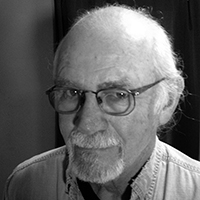 Jude stories have appeared in The Southern Review, American Short Fiction, National Public Radio’s The Sound of Writing, The Fiction Writer, Mysteries and Manners Quarterly, Journal of Kentucky Studies, Mysterical-E, The Riverbend Review, and many others. Jude is originally from Chataignier, LA and currently, teaches writing at Madisonville Community College in Madisonville, KY.
Jude stories have appeared in The Southern Review, American Short Fiction, National Public Radio’s The Sound of Writing, The Fiction Writer, Mysteries and Manners Quarterly, Journal of Kentucky Studies, Mysterical-E, The Riverbend Review, and many others. Jude is originally from Chataignier, LA and currently, teaches writing at Madisonville Community College in Madisonville, KY.

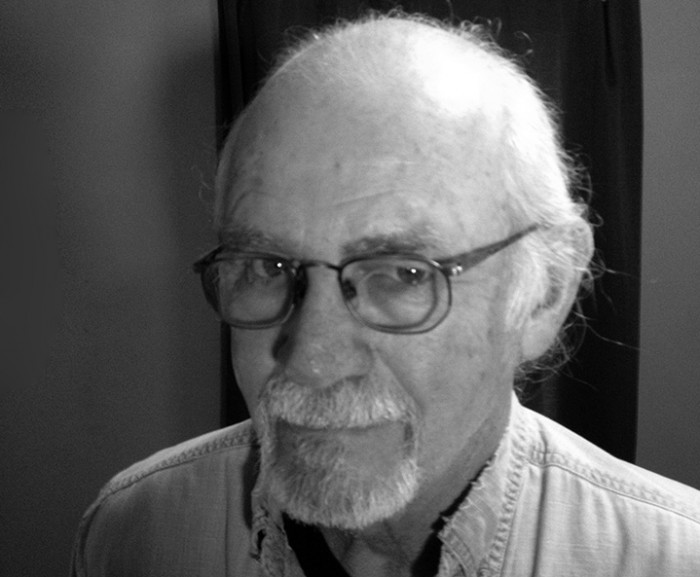
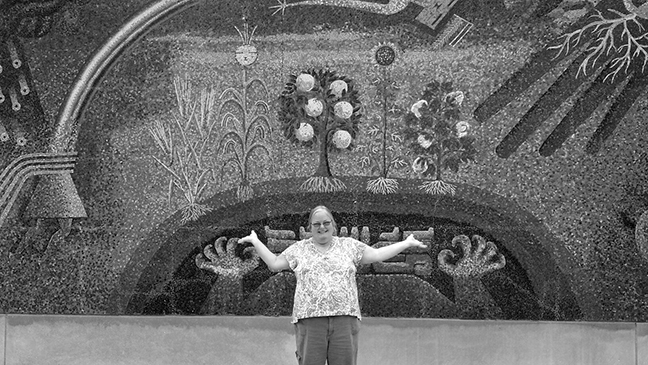
 Elizabeth Perdomo has lived and written in the Rio Grande Valley of South Texas these past fourteen years, moving to the region from the Rio Grande Valley of New Mexico. Born in Kansas, and raised both there and in Colorado, she has written poetry works since a young teen. Perdomo also lived in the Southeastern USA for a number of years. Her written pieces reflect on local place and culture, cooking, gardening, ecology and nature, traditions, spirituality and much more.
Elizabeth Perdomo has lived and written in the Rio Grande Valley of South Texas these past fourteen years, moving to the region from the Rio Grande Valley of New Mexico. Born in Kansas, and raised both there and in Colorado, she has written poetry works since a young teen. Perdomo also lived in the Southeastern USA for a number of years. Her written pieces reflect on local place and culture, cooking, gardening, ecology and nature, traditions, spirituality and much more.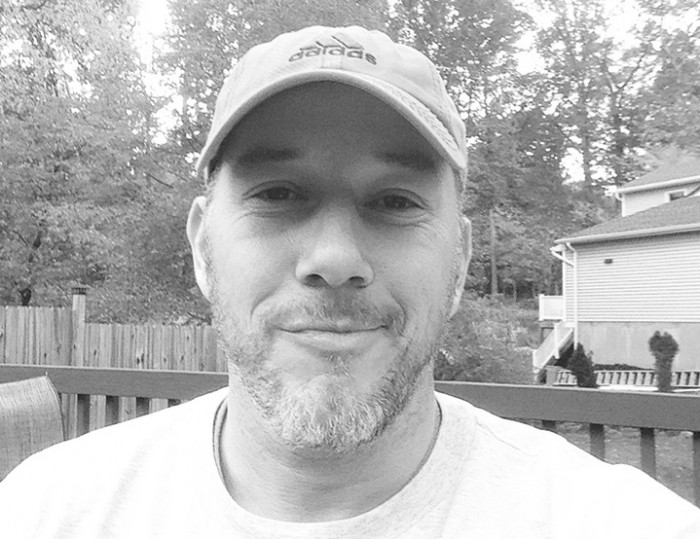
 Denis L. Mulroony is a part-time writer and full time educator with twenty years of experience as a teacher, coach and currently, a high school principal. He earned his D.Litt. from Drew University and his undergrad from King’s College. He is an eager writer and essayist who hones his craft whenever time allows (usually after his wife and kids go to sleep). Denis’s creative non-fiction has been published in the Atticus Review, Inkwell.org, FortyOunceBachelors.com and Survive Parenthood Magazine. He only uses his middle initial for writing purposes and when trying to compensate for being less-than-photogenic (see author photo).
Denis L. Mulroony is a part-time writer and full time educator with twenty years of experience as a teacher, coach and currently, a high school principal. He earned his D.Litt. from Drew University and his undergrad from King’s College. He is an eager writer and essayist who hones his craft whenever time allows (usually after his wife and kids go to sleep). Denis’s creative non-fiction has been published in the Atticus Review, Inkwell.org, FortyOunceBachelors.com and Survive Parenthood Magazine. He only uses his middle initial for writing purposes and when trying to compensate for being less-than-photogenic (see author photo).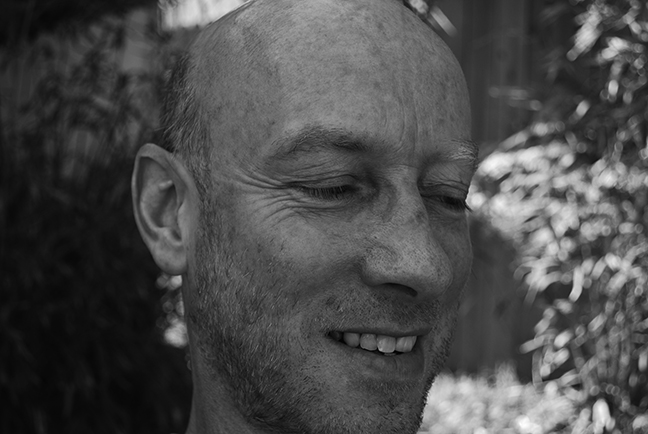
 Although Vincent Mannings is American, he was born in Liverpool, England, and was raised in Cheshire by Irish parents. Twenty years ago, he moved from London to Pasadena, where he’s lucky enough to live with his wife, Helene. He has a Ph.D. in an arcane discipline, and he works at the California Institute of Technology.
Although Vincent Mannings is American, he was born in Liverpool, England, and was raised in Cheshire by Irish parents. Twenty years ago, he moved from London to Pasadena, where he’s lucky enough to live with his wife, Helene. He has a Ph.D. in an arcane discipline, and he works at the California Institute of Technology.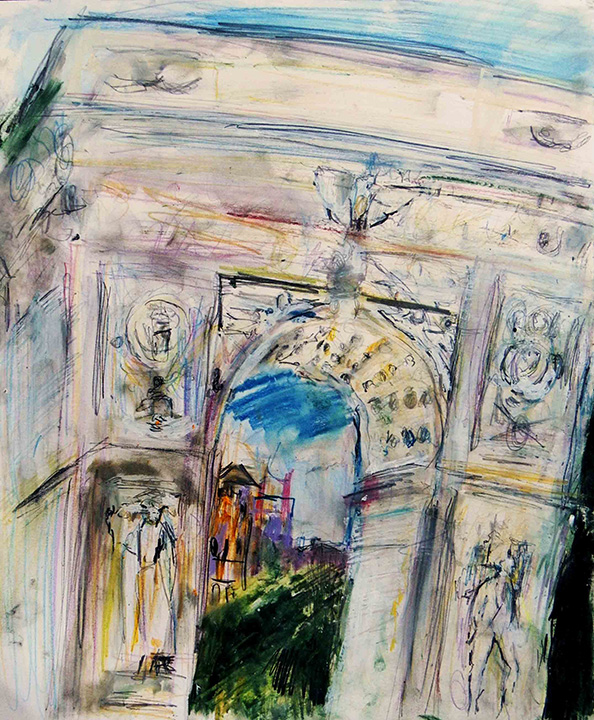



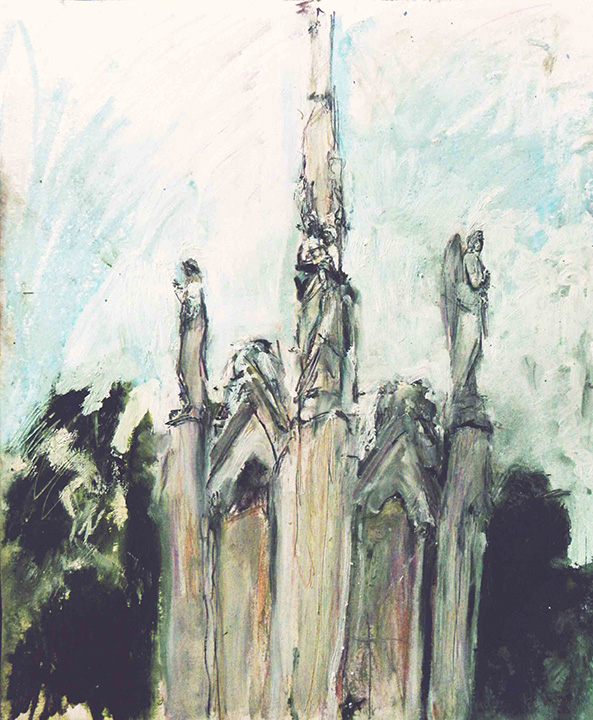


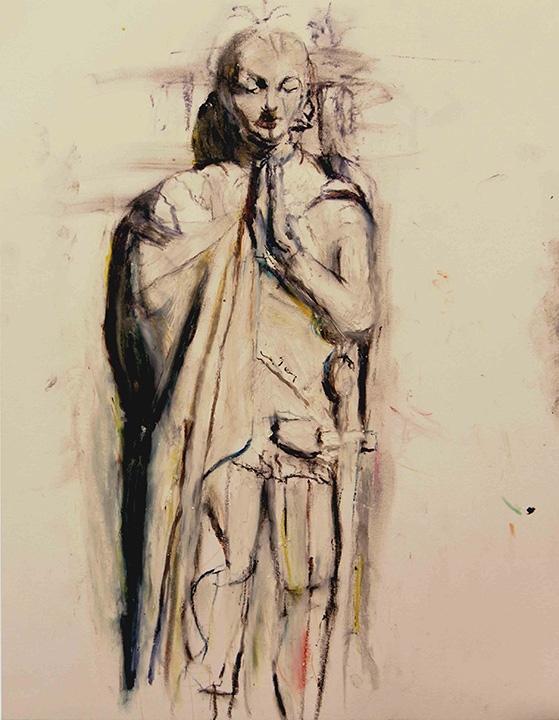
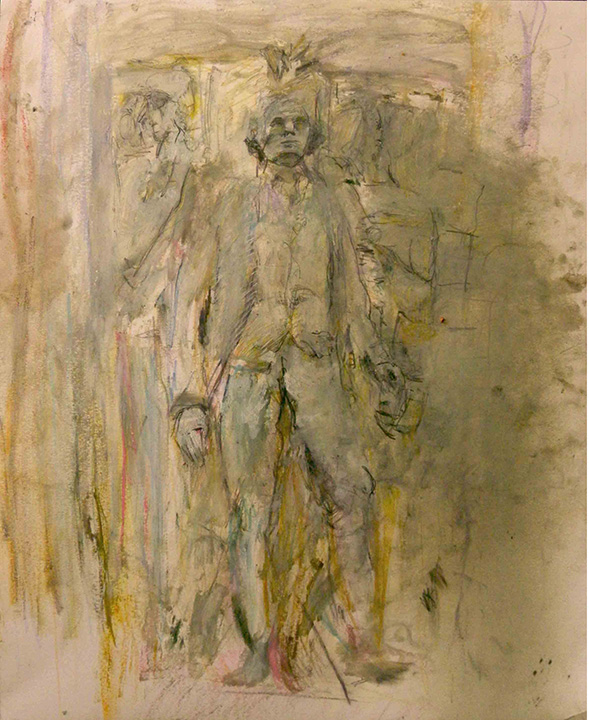
 The Anna Pierrepont Series, my drawings of public statuary in NYC, is plein air appropriation. Plein air drawings come into being through visual encounters with the constant changes of light and color in things ideally encountered out of doors. I roll a blue whole foods cart behind me, jammed with a folding chair, pencils, oil and chalk pastels, oil sticks and a pad of paper. I encounter a statue I wish to draw, unfold my chair, lay out my materials and struggle to represent the object emerging from the light and shadows of its surroundings onto a sheet of paper. The drawings are appropriation because the subjects I invariably select are public monuments created by other artists. In 2014, I began to augment the drawings with pictorial essays that enable me to explore beyond the plein air limitations of sight. The essays enable me to explore how the monuments came into being, their connection with their surroundings and their fate after installation. I have named the entire project after Anna Marie Pierrepont, a grand dame of 19th century Brooklyn interred in one of the most magnificent tombs in Greenwood Cemetery. I named the work in her honor as a comment on the gap between my silent and anonymous wanderings and her exulted self presentation.
The Anna Pierrepont Series, my drawings of public statuary in NYC, is plein air appropriation. Plein air drawings come into being through visual encounters with the constant changes of light and color in things ideally encountered out of doors. I roll a blue whole foods cart behind me, jammed with a folding chair, pencils, oil and chalk pastels, oil sticks and a pad of paper. I encounter a statue I wish to draw, unfold my chair, lay out my materials and struggle to represent the object emerging from the light and shadows of its surroundings onto a sheet of paper. The drawings are appropriation because the subjects I invariably select are public monuments created by other artists. In 2014, I began to augment the drawings with pictorial essays that enable me to explore beyond the plein air limitations of sight. The essays enable me to explore how the monuments came into being, their connection with their surroundings and their fate after installation. I have named the entire project after Anna Marie Pierrepont, a grand dame of 19th century Brooklyn interred in one of the most magnificent tombs in Greenwood Cemetery. I named the work in her honor as a comment on the gap between my silent and anonymous wanderings and her exulted self presentation.
 Kjell Nykvist was born in Kalmar, Småland, Sweden, but grew up in Butte, Montana. He earned undergraduate and graduate degrees in Museum Studies from Baylor University. Kjell is currently a museum curator in Houston, Texas. He recently married his long-time love, Inga Stefánsdóttir, who is a harpsichordist. Kjell’s work has appeared in such publications as Poetry Super Highway, La Noria Literary Journal, The Deronda Review, and Asinine Poetry, as well as in several American and Canadian anthologies. (Kjell Nykvist is a heteronym of Bryan Damien Nichols, who writes his poetry through Kjell, and another heteronym, Alexander Shacklebury. Kjell and Alexander’s debut collection of poems, Whispers From Within, will be published later this year by Sarah Book Publishing, a small, independent Texas press.)
Kjell Nykvist was born in Kalmar, Småland, Sweden, but grew up in Butte, Montana. He earned undergraduate and graduate degrees in Museum Studies from Baylor University. Kjell is currently a museum curator in Houston, Texas. He recently married his long-time love, Inga Stefánsdóttir, who is a harpsichordist. Kjell’s work has appeared in such publications as Poetry Super Highway, La Noria Literary Journal, The Deronda Review, and Asinine Poetry, as well as in several American and Canadian anthologies. (Kjell Nykvist is a heteronym of Bryan Damien Nichols, who writes his poetry through Kjell, and another heteronym, Alexander Shacklebury. Kjell and Alexander’s debut collection of poems, Whispers From Within, will be published later this year by Sarah Book Publishing, a small, independent Texas press.)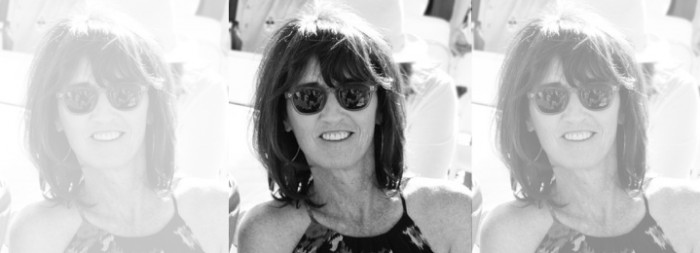
 Mary Taugher is
Mary Taugher is 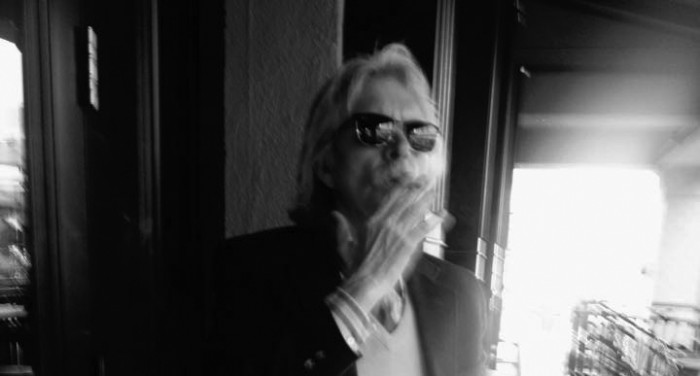
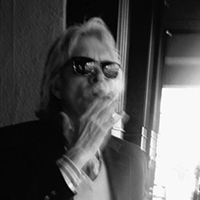 John Spencer Walters has published several award-winning academic journal articles, in addition to a monograph, U.S. Government Publication: Ideological Development and Institutional Politics, from the Founding to 1970, which is as dense as its title suggests.
John Spencer Walters has published several award-winning academic journal articles, in addition to a monograph, U.S. Government Publication: Ideological Development and Institutional Politics, from the Founding to 1970, which is as dense as its title suggests.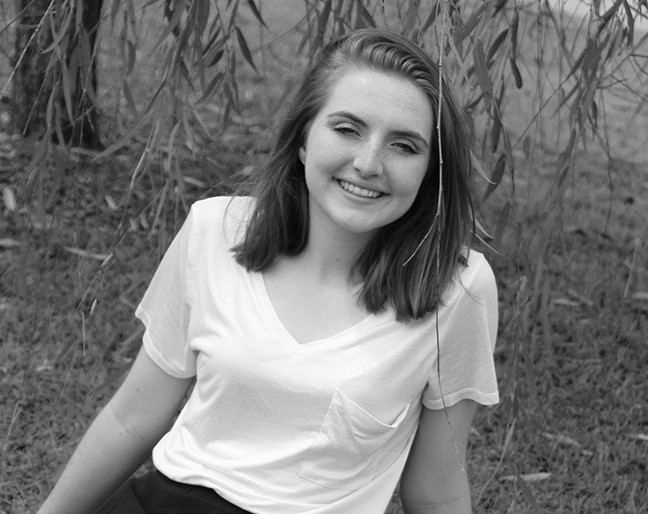
 Josey Parker is a frazzled student and coffee enthusiast who somehow finds time to write copious amounts of poetry and flash fiction. Her work has previously appeared in the Claremont Review. Although she is an author, she is not in fact, dead.
Josey Parker is a frazzled student and coffee enthusiast who somehow finds time to write copious amounts of poetry and flash fiction. Her work has previously appeared in the Claremont Review. Although she is an author, she is not in fact, dead.



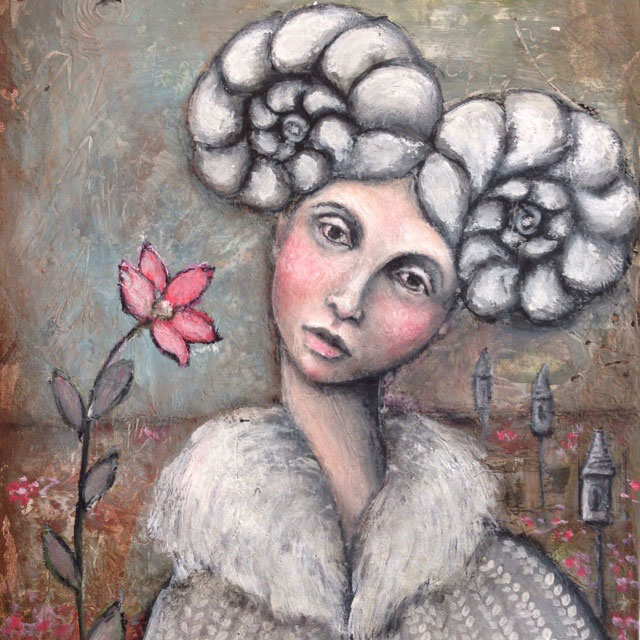



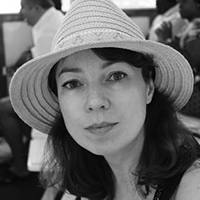 I was born in St. Petersburg, Russia, where I spent my childhood years. The Soviet Union was ruled by Leonid Brezhnev at the time and the USSR called itself the most powerful country in the world. At age four, my parents left for the Polar Far North for jobs in the Soviet oil and gas industry. They left me with my grandmother, who lived in a town called Luga, which was famously called the “second worst city in Russia” by the great Russian poet Alexander S. Pushkin.
I was born in St. Petersburg, Russia, where I spent my childhood years. The Soviet Union was ruled by Leonid Brezhnev at the time and the USSR called itself the most powerful country in the world. At age four, my parents left for the Polar Far North for jobs in the Soviet oil and gas industry. They left me with my grandmother, who lived in a town called Luga, which was famously called the “second worst city in Russia” by the great Russian poet Alexander S. Pushkin.
 Tommy Dean is the author of a flash fiction chapbook entitled Special Like the People on TV from Redbird Chapbooks. A graduate of the Queens University of Charlotte MFA program, he has been previously published in the Watershed Review, Wilderness House Literary Review, r.kv.r.y, Boston Literary Magazine, Foliate Oak, and Gravel. Find him @TommyDeanWriter on Twitter.
Tommy Dean is the author of a flash fiction chapbook entitled Special Like the People on TV from Redbird Chapbooks. A graduate of the Queens University of Charlotte MFA program, he has been previously published in the Watershed Review, Wilderness House Literary Review, r.kv.r.y, Boston Literary Magazine, Foliate Oak, and Gravel. Find him @TommyDeanWriter on Twitter.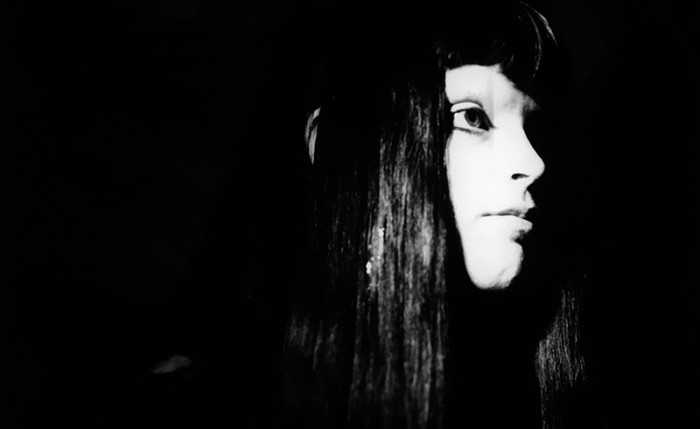
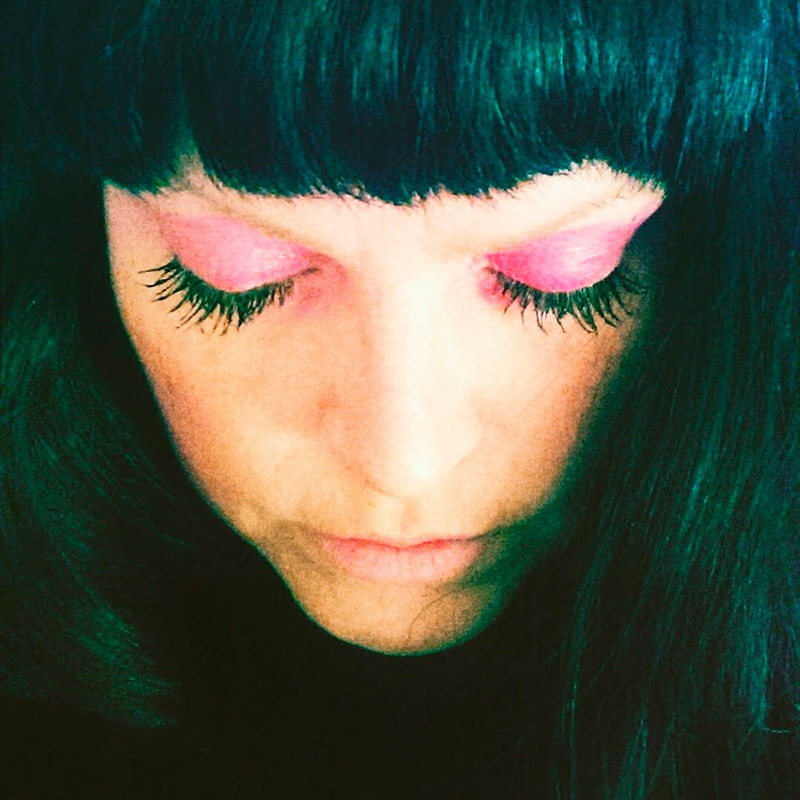


 Nuța Istrate Gangan is a Romanian-American author living in Davie, Florida with her son, Christian, and her husband, Dorin. Her poems are published both in Romanian and English, and her books are available online. Gangan’s poetry is translated into English by Adrian George Sahlean.
Nuța Istrate Gangan is a Romanian-American author living in Davie, Florida with her son, Christian, and her husband, Dorin. Her poems are published both in Romanian and English, and her books are available online. Gangan’s poetry is translated into English by Adrian George Sahlean.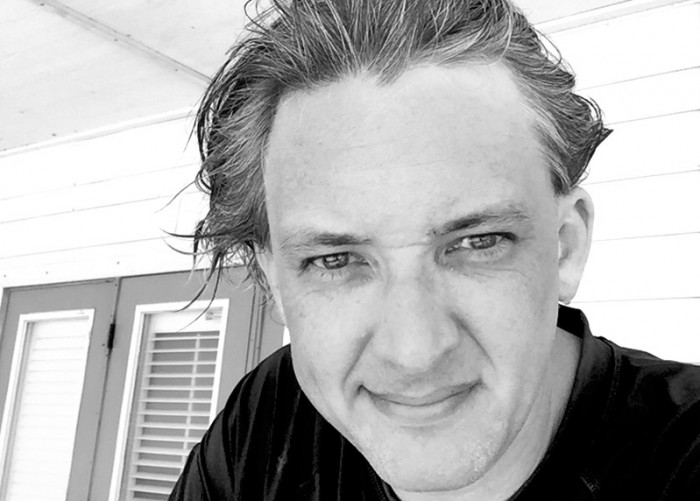
 Tad Bartlett’s writing has appeared or is forthcoming in print or online at the Oxford American, The Carolina Quarterly, Euphony Journal, The Rappahannock Review, Bird’s Thumb, The Subtopian, and Double Dealer, among others. He’s earned an MFA in fiction at the Creative Writing Workshop at the University of New Orleans; and is a graduate of Spring Hill College in Mobile, Alabama, and Tulane University Law School. He is a founding member of the Peauxdunque Writers Alliance.
Tad Bartlett’s writing has appeared or is forthcoming in print or online at the Oxford American, The Carolina Quarterly, Euphony Journal, The Rappahannock Review, Bird’s Thumb, The Subtopian, and Double Dealer, among others. He’s earned an MFA in fiction at the Creative Writing Workshop at the University of New Orleans; and is a graduate of Spring Hill College in Mobile, Alabama, and Tulane University Law School. He is a founding member of the Peauxdunque Writers Alliance.
 Jacqueline Bridges works as a guidance counselor to junior high students, where she puts her Masters degree to work, and then some. She is new to flash fiction and reads it daily (even in the counseling office). Her students join her weekly for a writing club, where they impress her with stories about fairies, dragons, and golden retrievers. She has three publications to-date, with 365 Tomorrows, Touch Poetry, The Fable Online, and Short Fiction Break. She’s currently working on a young adult, science fiction novel, mostly void of fairies, dragons, and golden retrievers.
Jacqueline Bridges works as a guidance counselor to junior high students, where she puts her Masters degree to work, and then some. She is new to flash fiction and reads it daily (even in the counseling office). Her students join her weekly for a writing club, where they impress her with stories about fairies, dragons, and golden retrievers. She has three publications to-date, with 365 Tomorrows, Touch Poetry, The Fable Online, and Short Fiction Break. She’s currently working on a young adult, science fiction novel, mostly void of fairies, dragons, and golden retrievers.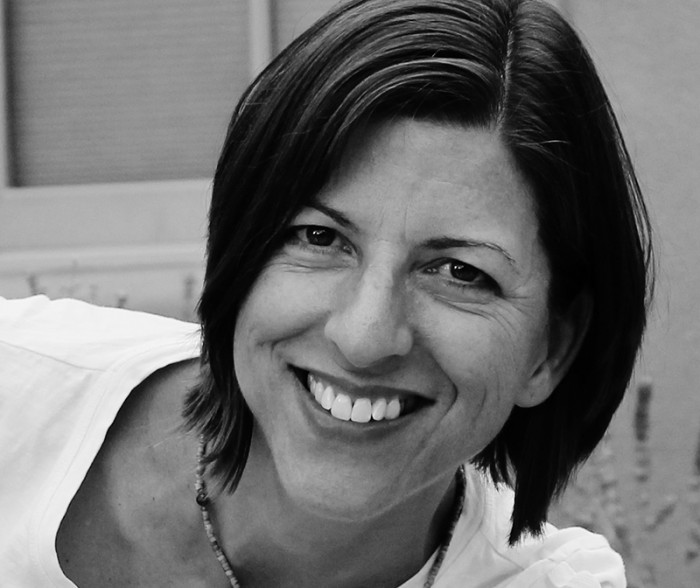
 Sara Regezi is a former copywriter, former comic, former musician, and current nurse practitioner in Silver Spring, Maryland. She wants to marry Jess Walter except that she’s already married (and so is he, probably). Her previous work has appeared on girlcomic.net and live onstage with Monalog Cabin. She is thrilled to be published in Writing Disorder.
Sara Regezi is a former copywriter, former comic, former musician, and current nurse practitioner in Silver Spring, Maryland. She wants to marry Jess Walter except that she’s already married (and so is he, probably). Her previous work has appeared on girlcomic.net and live onstage with Monalog Cabin. She is thrilled to be published in Writing Disorder.
 Karen Corinne Herceg graduated magna cum laude from Columbia University with a B.A. in Literature/Writing. In 2011, she received graduate credits in an advanced writing curriculum with emphasis on editing and revision. She has published in independent, small press publications and has published a book of poetry, Inner Sanctions. As a recipient of New York State grants, Karen has read at various venues, universities and libraries on programs featuring such renowned writers as Pulitzer Prize winner John Ashbery and has studied and read with such well-known poets as David Ignatow and Pulitzer Prize winner Philip Schultz. Publications include Literary Mama, The Furious Gazelle, Immortal Verses, From A Window: Harmony and Inkwell. Her short story, “Knitting In Transit”, was published in Chrysalis Magazine, and she has completed her first full-length novel, Diva! Her current writing projects include a new volume of poems and co-authoring a memoir with award winning music producer Glenn Goodwin. Karen is a featured poet on the Hudson Valley poetry scene. She resides in Orange County, New York.
Karen Corinne Herceg graduated magna cum laude from Columbia University with a B.A. in Literature/Writing. In 2011, she received graduate credits in an advanced writing curriculum with emphasis on editing and revision. She has published in independent, small press publications and has published a book of poetry, Inner Sanctions. As a recipient of New York State grants, Karen has read at various venues, universities and libraries on programs featuring such renowned writers as Pulitzer Prize winner John Ashbery and has studied and read with such well-known poets as David Ignatow and Pulitzer Prize winner Philip Schultz. Publications include Literary Mama, The Furious Gazelle, Immortal Verses, From A Window: Harmony and Inkwell. Her short story, “Knitting In Transit”, was published in Chrysalis Magazine, and she has completed her first full-length novel, Diva! Her current writing projects include a new volume of poems and co-authoring a memoir with award winning music producer Glenn Goodwin. Karen is a featured poet on the Hudson Valley poetry scene. She resides in Orange County, New York.
 Charles Lowe’s work has been nominated for the Pushcart Prize and has been published or is forthcoming in Prairie Schooner, Fiction International, Guernica, the Pacific Review, Hanging Loose, and elsewhere. His fiction has also been included in the recently published anthology, Friend. Follow. Text. #storiesFromLivingOnline. He lives with his wife and daughter in Zhuhai, China, He is the Programme Director of the Contemporary English Language and Literature programme and the Director of the Cross-Cultural Studies at United International College. He lives with his wife and daughter in Zhuhai, China.
Charles Lowe’s work has been nominated for the Pushcart Prize and has been published or is forthcoming in Prairie Schooner, Fiction International, Guernica, the Pacific Review, Hanging Loose, and elsewhere. His fiction has also been included in the recently published anthology, Friend. Follow. Text. #storiesFromLivingOnline. He lives with his wife and daughter in Zhuhai, China, He is the Programme Director of the Contemporary English Language and Literature programme and the Director of the Cross-Cultural Studies at United International College. He lives with his wife and daughter in Zhuhai, China.
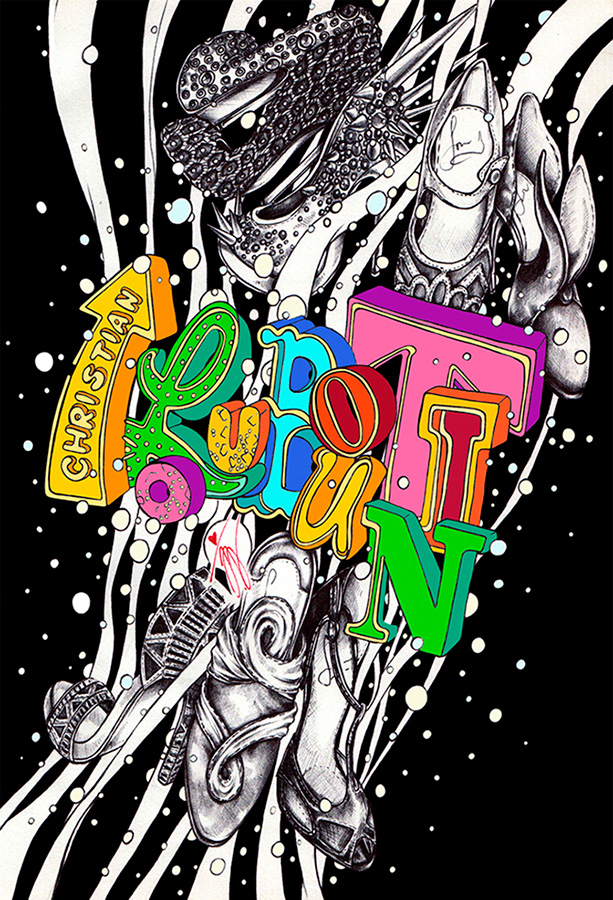
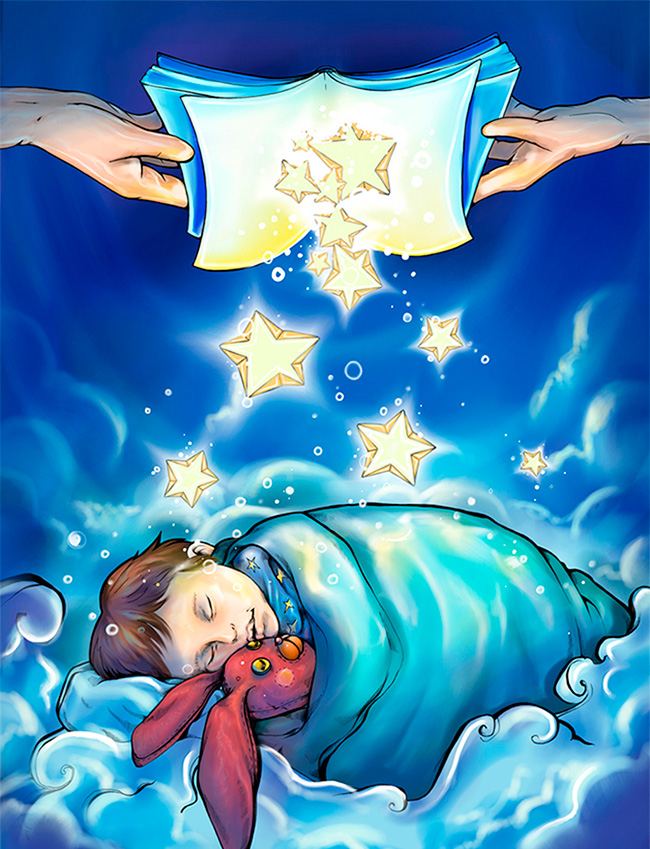


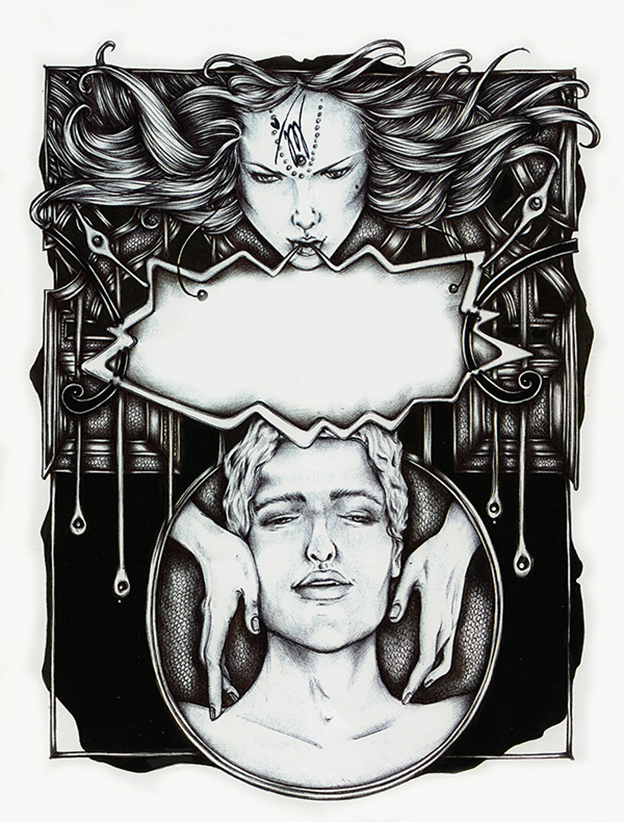




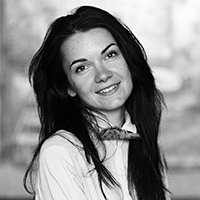 I was born in Vladivostok, Russia, and spent my first twenty years of life by the seashore. After graduating Far Eastern National University (Vladivostok, Russia) with my Bachelor degree in Math in 2007 I spent about seven years working in the financial industry in Russia and abroad. In 2012, I was in a car accident entailing ten days being in coma and ten months of rehabilitation. During that period, I started to draw prolifically as an artist, illustrated one book, the full Tarot deck (78 cards) and made more that 50 illustrations for different projects. This was helping me to fill my time as my abilities were pretty limited at that time. After I left hospital I moved to Canada and continued working as an illustrator and concept artist for animation and gaming industry.
I was born in Vladivostok, Russia, and spent my first twenty years of life by the seashore. After graduating Far Eastern National University (Vladivostok, Russia) with my Bachelor degree in Math in 2007 I spent about seven years working in the financial industry in Russia and abroad. In 2012, I was in a car accident entailing ten days being in coma and ten months of rehabilitation. During that period, I started to draw prolifically as an artist, illustrated one book, the full Tarot deck (78 cards) and made more that 50 illustrations for different projects. This was helping me to fill my time as my abilities were pretty limited at that time. After I left hospital I moved to Canada and continued working as an illustrator and concept artist for animation and gaming industry.











